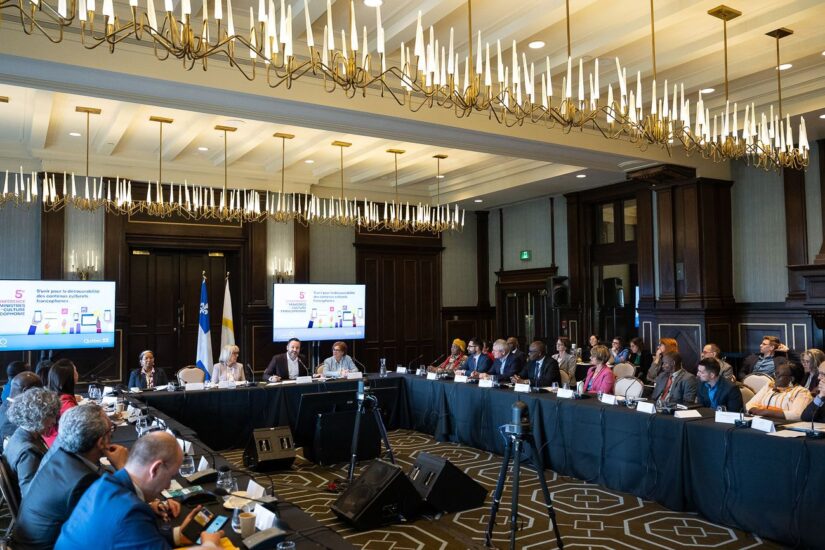
| The Coalition for the Diversity of Cultural Expressions (CDCE) congratulates the Ministers of Culture of the Francophonie, who gathered in Québec from May 22 to 24, 2025, for the 5th Conference of Ministers of Culture of the Francophonie, on the adoption of an ambitious joint declaration. The declaration sets out clear commitments and concrete actions to enhance the discoverability of Francophone cultural content online and includes the creation of a follow-up mechanism to ensure its effective implementation.
The CDCE welcomes the stance taken by the Ministers of Culture of the Francophonie, who acknowledge the urgent need to act in response to the profound changes brought about by digital technologies and the risks of cultural homogenization and linguistic uniformity they entail. It applauds the scope of the adopted text, which includes several commitments organized around six main areas:
Paragraph 11 of the declaration, which calls for “advancing a coordinated position in international forums […] notably at UNESCO,” sends a strong signal in support of coherent international mobilization. The CDCE sees this as a strategic opportunity to amplify the collective voice of Francophone states—and more broadly, of countries whose cultural expressions do not enjoy fair visibility in the digital space. In the lead-up to the Conference of Parties to the 2005 Convention (June 2025) and MONDIACULT 2025 (September 2025), the CDCE encourages the adoption of clear and binding international standards that guarantee genuine diversity of cultural expressions online. This aligns with the CDCE’s long-standing demands, which emphasize the need to adopt legislation regulating online streaming platforms and to implement binding measures – both nationally and internationally – to regulate the development of generative artificial intelligence (AI) based on the principles of authorization, remuneration, transparency, and diversity of cultural expressions. The recognition of the value and originality of human-created works must remain at the heart of digital cultural policies. The CDCE also reaffirms the importance of involving civil society in all stages of the development and implementation of cultural policies, especially in the digital context, where technological upheavals require a collective response grounded in field realities. In this regard, the CDCE extends a hand to decision-makers to contribute to reflections on developing an implementation mechanism for the declaration that is adapted to the evolving technologies impacting culture. Thanks to the role played by its Executive Director, Marie-Julie Desrochers, as rapporteur during the premières Assises culturelles de l’intelligence artificielle en Francophonie – Cultur’IA, the CDCE was able to directly convey to Ministers of Culture the concerns, proposals, and expectations expressed by civil society. This meaningful dialogue reflects a shared commitment to grounding public policy in a nuanced understanding of current and future digital challenges (read the statement). Finally, the Coalition highlights the key role played by the Government of Québec and the Organisations internationale de la Francophonie in co-organizing this event, and it commends the leadership of Québec’s Minister of Culture and Communications, Mathieu Lacombe, for hosting this major event in Québec City, the cradle of Francophone America. |
- Related publications
-